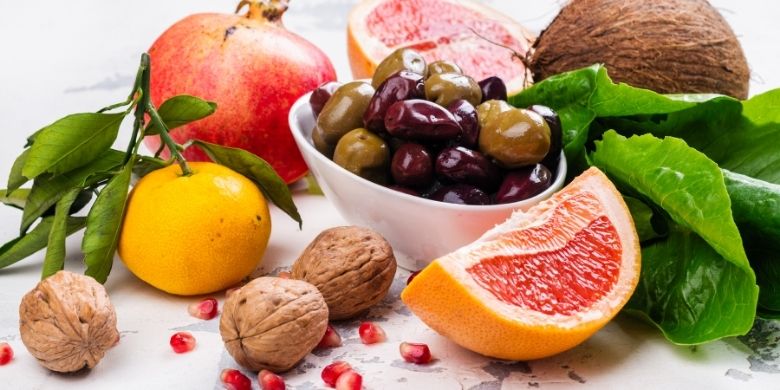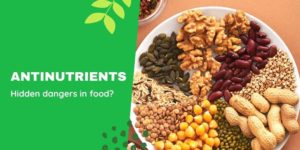You may have recently heard doctors saying that some foods like red wine and dark chocolate can improve your health and can actually help you live longer. It is true. There is new research on the topic. It is due to a group of compounds known as polyphenols, which are present in those foods.
While these two foods are high in polyphenols, they are not foods that we can or should eat on a daily basis or in large amounts. But, this finding makes polyphenols more interesting and encourages us to learn more about them and search for them in other foods.
So, what are polyphenols, what are the benefits of polyphenols? In this article, we will learn everything about polyphenols including top foods that are high in polyphenols. Let’s get started.
What Are Polyphenols?
Polyphenols are a class of plant compounds found in a variety of fruits, vegetables, and other plants. They are a type of micronutrient with antioxidant properties and a number of health benefits.
Polyphenol supplements are also available in the market, but they are less effective than eating polyphenol-rich whole foods.
Types of Polyphenols
As of now, researchers have discovered over 8,000 different types of these plant compounds. Polyphenols are divided into four groups.
Flavonoids. Examples of flavonoids are quercetin in onions and elderberry, catechins in tea leaves, anthocyanins in purple cabbage, and red hibiscus flower.
Phenolic acids. Examples of phenolic acids are lignans in flaxseeds and sesame seeds.
Polyphenolic amides. An example of polyphenolic amides are capsaicinoids found in capsicum or peppers.
Others Polyphenols. This group includes resveratrol, ellagic acid, curcumin. Resveratrol is found in the skin and seeds of red grapes, ellagic acid found in berries, and curcumin found in turmeric.
Top Foods That Are High in Polyphenols
Let’s look at what foods have polyphenols. There are several polyphenol-rich foods to choose from. We have included all good sources of polyphenols in this list.
Polyphenol levels in foods vary depending on the type of plant, its origin, ripeness, and how it is produced.
Top foods that are high in polyphenols:
Fruits High in Polyphenols
| Elderberries | Blueberries | Red Grapes |
| Black grapes | Kiwi | Pomegranate |
| Pears | Raspberries | Strawberries |
| Cherries | Apples | Blackberries |
| Peaches | Red currants | Black currants |
| Plums | Papaya |
Vegetables High in Polyphenols
| Carrots | Broccoli | Asparagus |
| Artichokes | Red lettuce | Red Chicory |
| Purple cabbage | Purple carrots | Onions |
| Tomatoes | Purple cauliflower |
Nuts and Seeds High in Polyphenols
| Flax seeds | Sesame seeds | Walnuts |
| Hazelnuts | Almonds | Pecans |
Herbs and Spices High in Polyphenols
| Cloves | Cinnamon | Cumin |
| Turmeric | Basil | Caraway |
| Celery seed | Peppermint | Spearmint |
Beverages High in Polyphenols
| Green tea | Black tea | Red wine | Coffee |
Other Food Sources High in Polyphenols
| Capers | Cocoa powder | Olive oil |
Why Are Polyphenols Good for You?
- Polyphenols are essential micronutrients for the human body. Several studies have shown that people who eat enough polyphenols live longer. Let’s take a look at how polyphenols can help your well-being.
- Polyphenols are good antioxidants. Antioxidants protect cells and tissues from free radicals, environmental toxins, and diseases.
- Good for the heart. Polyphenols have been shown in several studies to balance blood pressure and cholesterol levels, thus preventing heart disease.
- May protect against cancer. Polyphenols can help to prevent or treat cancer, according to research.
- May relieve chronic inflammation. Polyphenols are known for their ability to prevent disease. They can help regulate inflammatory cytokines.
- Boosts immunity. Some polyphenols, like quercetin, can improve immunity and aid in disease prevention.
- Anti-aging properties. Polyphenols are good for skin and hair because they prevent cell damage.
Polyphenols Risks and Side Effects
Foods high in polyphenols are generally considered safe for most people. Eating real foods that are high in polyphenols is unlikely to cause any side effects.
However, if a person has digestive problems, he might need to avoid polyphenol-rich foods from the nightshade family or foods with high lectin levels.
While polyphenol-rich foods are safe and healthy, polyphenol capsules and supplements have been related to a variety of negative health effects.
Polyphenols Supplements Side Effects
We already know how good polyphenol-rich foods are for humans, but how do supplements stack up?
While polyphenol-rich foods are generally safe and healthy, supplements can cause issues. Polyphenol supplements can have some negative effects.
The first problem is polyphenols in supplements are much higher in quantity than those present in real foods.
According to research it can promote tumor growth and can disrupt thyroid hormones.
Supplements can interfere with the absorption of other essential nutrients.
An animal study found that polyphenol supplementation can damage the kidneys.
It is always better to stick to natural foods rather than supplements since real foods also contain a lot of vitamins, minerals, and fiber.
Frequently Asked Questions on Polyphenols
Why Do Plants Produce Polyphenols?
Polyphenols are a type of naturally occurring compound that can be found in a variety of foods such as fruits, vegetables, nuts, and seeds. They play an important role in protecting plants from ultraviolet radiation and pathogen attack.
Are Polyphenols Antioxidants?
Polyphenols are strong antioxidants, which is one of the reasons for their popularity. They have antioxidant properties that protect us from cell damage due to oxidative stress.
How Much Polyphenols in a Cup of Green Tea?
Green tea contains a lot of polyphenols, which is why it’s so popular. One 240ml cup of green tea contains about 300 mg of polyphenols. Green tea has several polyphenols including epigallocatechin gallate, epigallocatechin, epicatechin gallate, and epicatechin. One cup contains approximately 168, 78, 34, and 20 mg of these compounds, respectively.
Are Polyphenols Destroyed by Heat?
A study was done to see how cooking alters polyphenols and their antioxidant activity in six edible leaves.
In that study, total antioxidant capacity was measured in both fresh and cooked leaves.
Researchers discovered that frying reduced key bio-actives and antioxidants in all of the vegetables studied. However, steaming and boiled leaves actually showed higher quantities of polyphenols and antioxidant capacity.
So, it is clear that polyphenols can be damaged by overheating, but if cooked properly, they can become more bioavailable.
Summary
- Polyphenols are a type of micronutrient found in a variety of plants and foods.
- Polyphenols are nature’s gift to humans. They provide numerous health benefits.
- Polyphenols found in natural foods have no negative side effects.
- Polyphenol supplements may provide some short-term benefits, but they can have negative side effects.
- So, we should stick to natural food sources for our polyphenol needs. These miraculous plant compounds have the potential to transform our health for the better.




